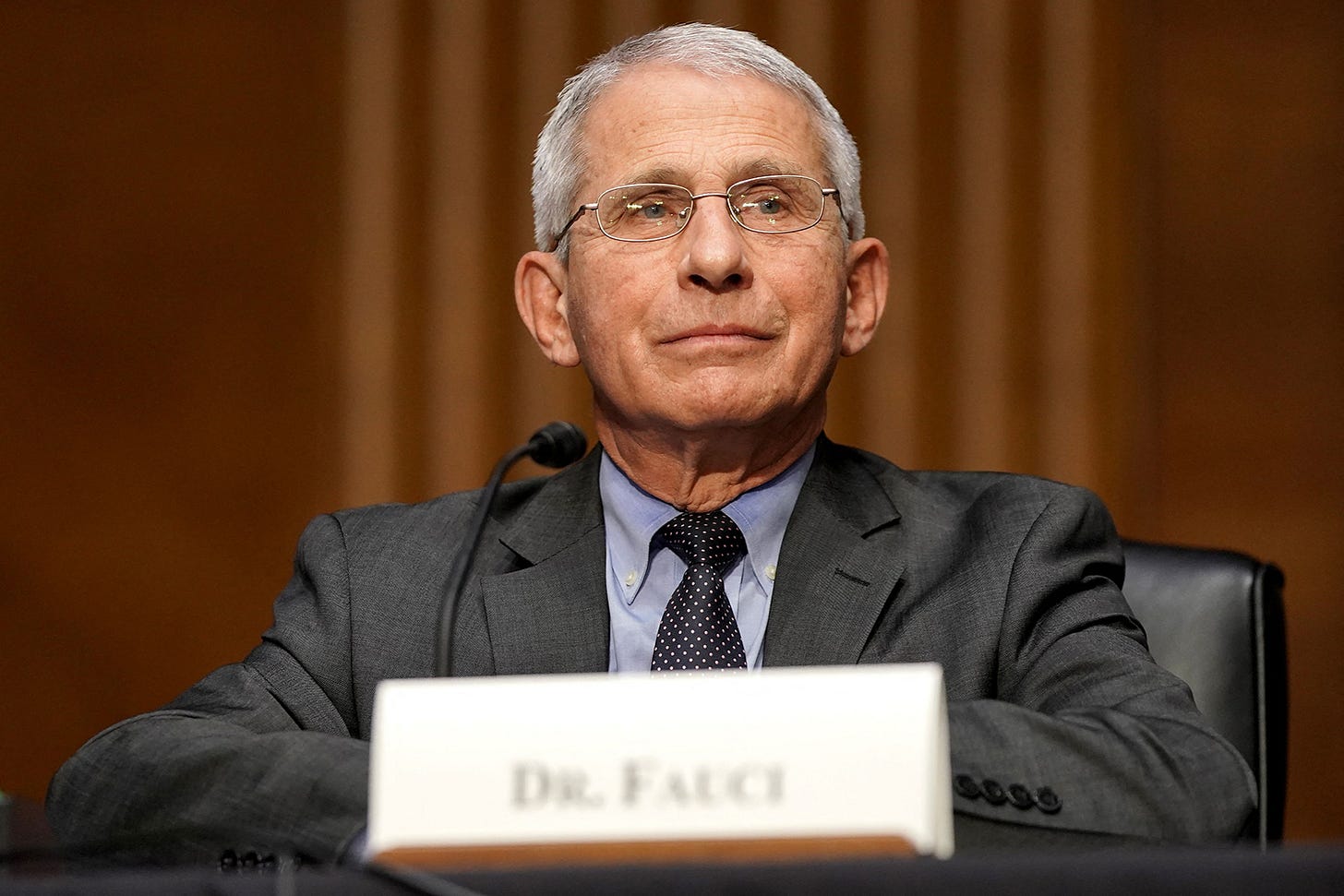On Technocracy
Democracy's Opposite, Now Posing as Democracy
We don’t hear the term “technocracy” that often, but the idea is all around us. Technocracy means “rule by experts”. It refers to a system of government that purports to put experts in charge of managing every aspect of life.
Technocracy stands opposite “democracy”, where the “demos” - that is, the people - all have a say. Technocrats loathe democracy because they view the common people as idiots. The find it ridiculous that common idiots should have as much say as experts.
It might not be intuitive that democracy is the opposite of technocracy. Wouldn’t a system where idiots have all of the power and experts have none be further away from technocracy? The answer is no, because this would actually be a system where the idiots have been designated as the experts in a technocracy!
This leads us to the first problem with technocracy in practice - credentialing. We’ve known since at least the Wizard of Oz that diplomas don’t always correlate with intelligence…
…but the problem of false expertise grows far larger when credentials are the key to vast political power.
Humanity has as much of a history of authoritarianism based on illegitimate “expertise” as it has of rule by “divine right”. In fact, the two are often the same. Those “most qualified to decide” might be priests or elders, or they might just be the king’s cousins or representatives of wealthy noble families. Slap a robe and a credential on them, and they’re experts. Don’t question them!
Even credentialing systems that are legitimate for a time become corrupt when their credentials lead to too much power, as we’ve seen in the American university system.
Sadly, that’s not the only problem with technocracy. Its biggest flaw is that good decision-making is usually more about knowledge as it is about intelligence, and while genuine experts might have more knowledge than the average member of the public, they have far less knowledge than the entire public put together has. That is why we sometimes refer to the wisdom of the crowd. A host of studies and examples have shown us that experts (or groups of experts) outperform crowds surprisingly infrequently. Even a large committee of experts is likely to be oblivious to a lot of “boots on the ground” reality of life outside their ivory towers.
Now, democracy has its flaws as well, and technocrats will surely highlight some of its bad decisions. Winston Churchill famously said “The strongest argument against democracy is a five-minute conversation with the average voter”. Democracy can be “two wolves and a sheep voting on what to have for dinner”.
But democracy’s greatest strength was never supposed to be its brilliant decision-making. Democracy is firstly an anti-corruption measure. Voters can’t abuse others unless they get 51% of the electorate on board, and that’s a lot harder than manipulating (or bribing!) a few “experts”.
And experts do succumb to manipulation; in fact, their hubris can make them easier to fool than the rest of us. They can also be corrupt, or can become more corrupt or arrogant as they spend time in positions of authority.
Technocracy’s promise of better decisions from better people tends to coincide with the belief that government should have a lot more power and micromanage a lot more of life, which means that when the experts become abusive (or just plain wrong), the consequences are more painful.
The Misinformation Ruse
Recent history has provided a new chapter in the saga of technocratic movements. About eight years ago, America’s more technocratic activists happened upon a brilliant new strategy for turning the tables on their mortal enemy, democracy:
“What if,” they thought to themselves, “We say that true democracy only happens when the voters are properly informed?”
And who decides which ideas are proper? Why, the experts, of course!
With this simple rhetoric, America’s betters have decided that democracy and technocracy are now perfect synonyms, rather than the opposites that they’re supposed to be. Decisions that the anointed experts dislike are “undemocratic”, even when the majority votes for them. True democracy always agrees with the experts!
None of technocracy’s weaknesses are overcome by the Misinformation Ruse. To the contrary, the ruse’s dishonesty makes technocracy’s vulnerability to corruption all the more severe.
It seems we could all use a little more expertise - at understanding the difference between democracy and its opposite.





Wow. Great essay, mate. This is also one of the reasons why the cognoscenti within the Democratic Party weren't at all concerned by Biden's cognitive decline. They were only concerned about maintaining the pretence of his ability to continue to function ceremonially as President. Why? Because they were comforted by the notion of a technocratic class working diligently behind the scenes to make major decisions.
To the majority of Americans this would be a deeply disturbing, rather than comforting, thought.
This is the eternal battle of our times. Technocratic Rule vs. the Democratic Veto maintaining the sovereignty and pre-eminence of the Wisdom of Crowds. All evidence points to the fact that Wisdom of Crowd civilisations are better and more prosperous. The exception is the field of engineering operating in relatively closed systems. Natural monopolies might be another specific exception.
The world is full of useless "experts" who would have nothing to do if government was cut back. But government must be cut back before it hollows out the economy and the culture.
Great essay, JD.